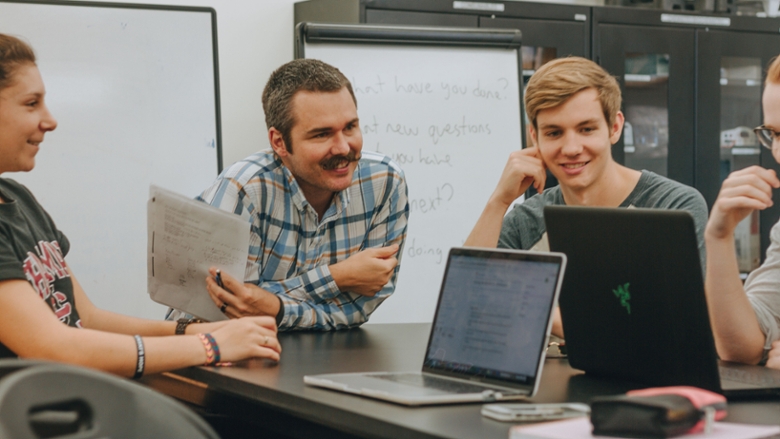The Grand Challenges Initiative is a required part of the curriculum for students pursuing any bachelor’s of science degree in the Schmid College of Science and Technology or Fowler School of Engineering. It is also open to students from all majors—and could be especially relevant for undeclared students with STEM interests.
The program takes place over the course of two years. You’ll complete a sequence consisting of one First-Year Foundations GCI Course (FFC 100B - Grand Challenges in Science and Engineering), and three 1-credit GCI seminars: GCI 150, GCI 200 and GCI 250.
Those entering Schmid College or Fowler School of Engineering after the beginning of their first year (either by transfer or change of major) are required to enroll in the Grand Challenges Initiative if they have less than 60 credit hours (excluding AP and IB). Students with more than 60 credit hours may still participate, but it is not required. Feel free to contact Program Co-Director Dr. Javier Espeleta, with advising questions.
First-Year Foundations GCI Course (FFC 100B)
During the first semester of your first year, you’ll take FFC 100B, a First-Year Foundations Course called Grand Challenges in Science and Engineering (3 credits). In this class you will:
- Meet your team and select the challenge your team will take on.
- Begin working with your research mentor (one of Chapman’s Postdoctoral Fellows).
- Hypothesize about ways to solve your challenge.
- Learn about university-level research techniques and protocols.
- Develop a written project plan that details smaller goals and milestones, all building toward a solution of your grand challenge.
GCI 1-credit Seminars
During each of your 1-credit seminars, you’ll spend a significant amount of time outside class working with your team and research mentor. Learn more about each of these seminars below:
